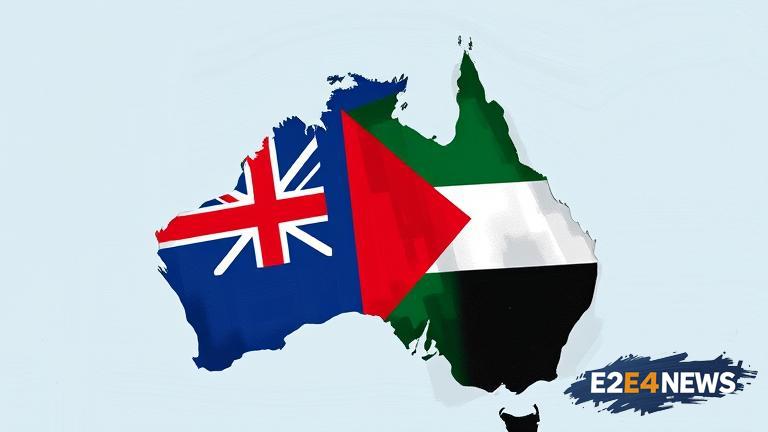The Australian Labor Party, led by Prime Minister Anthony Albanese, is facing mounting pressure to recognize Palestine as a sovereign state. This move has sparked intense debate, with some arguing it would be a significant step towards a two-state solution, while others claim it would undermine Israel’s security. The issue has become a major point of contention in the upcoming election, with various groups and politicians weighing in on the matter. Albanese has stated that his government would consider recognizing Palestine, but only if it aligns with Australia’s national interests and does not compromise Israel’s security. However, this stance has been met with criticism from some quarters, who argue that it does not go far enough in supporting the Palestinian cause. On the other hand, some have praised Albanese’s cautious approach, citing the need for a balanced and nuanced stance on the complex issue. The Palestinian community in Australia has been vocal in its calls for recognition, with many arguing that it is a matter of basic human rights and dignity. Meanwhile, the Israeli government has expressed concerns about the potential implications of Australian recognition, citing the need for a negotiated settlement to the conflict. The issue has also sparked a wider debate about Australia’s role in the Middle East and its relationships with key players in the region. As the election approaches, the Palestine issue is likely to remain a major point of contention, with politicians and activists on all sides seeking to sway public opinion. The Australian people will ultimately have the final say, and it remains to be seen how the issue will play out in the polls. In recent years, there has been a growing trend towards recognition of Palestine, with several countries around the world having already taken this step. However, the issue remains highly divisive, and any move towards recognition would need to be carefully considered and negotiated. The Australian government has a long history of supporting Israel, and any shift in policy would be significant. At the same time, there is a growing awareness of the Palestinian cause, and many Australians are calling for greater action to support the rights of the Palestinian people. The issue is complex and multifaceted, and any solution would need to take into account the competing interests and claims of all parties involved. As the debate continues to unfold, it is clear that the Palestine issue will remain a major point of contention in Australian politics for some time to come. The Australian government’s stance on Palestine has significant implications for the country’s relationships with key players in the Middle East, and any move towards recognition would need to be carefully considered in this context. Ultimately, the decision will depend on a range of factors, including the outcome of the election and the evolving dynamics of the conflict. The Palestinian community in Australia is watching the situation closely, and many are hopeful that the upcoming election will bring about a shift in policy. However, others are more skeptical, citing the long history of Australian support for Israel and the significant challenges that would need to be overcome in order to achieve recognition. As the situation continues to unfold, it is clear that the Palestine issue will remain a major point of contention in Australian politics, with significant implications for the country’s relationships with key players in the Middle East and beyond.
